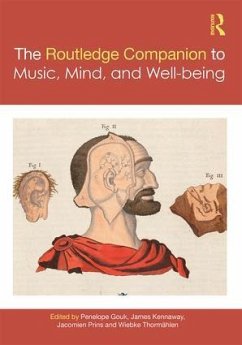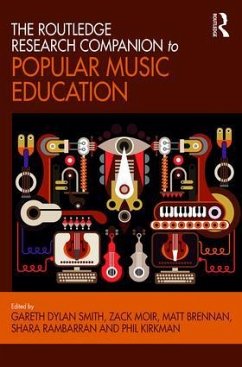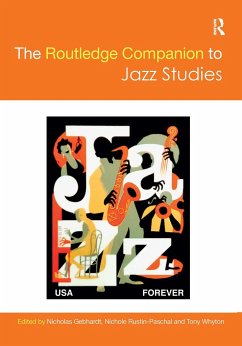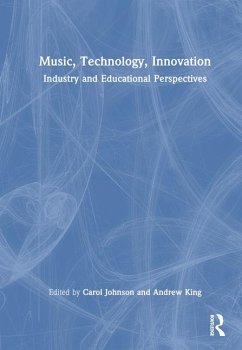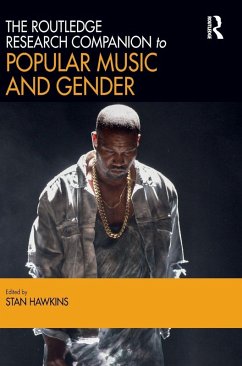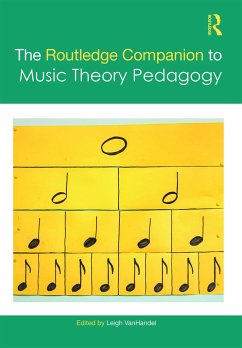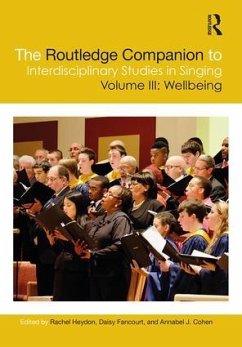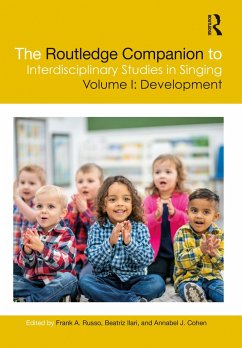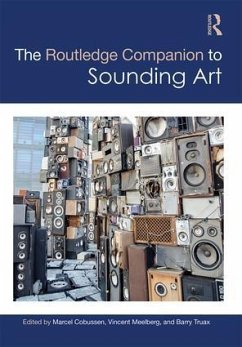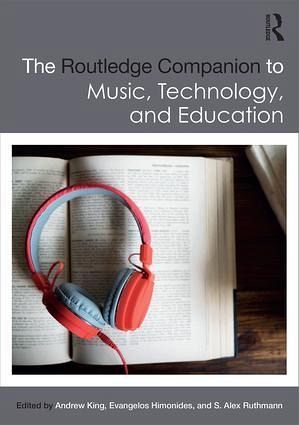
The Routledge Companion to Music, Technology, and Education
Versandkostenfrei!
Versandfertig in 1-2 Wochen
272,99 €
inkl. MwSt.

PAYBACK Punkte
136 °P sammeln!
The Routledge Companion to Music, Technology, and Education is a comprehensive resource that draws together burgeoning research on the use of technology in music education around the world. Rather than following a procedural how-to approach, this companion considers technology, musicianship, and pedagogy from a philosophical, theoretical, and empirically-driven perspective, offering an essential overview of current scholarship while providing support for future research. The thirty-seven chapters in this volume consider the major aspects of the use of technology in music education: Part I. Con...
The Routledge Companion to Music, Technology, and Education is a comprehensive resource that draws together burgeoning research on the use of technology in music education around the world. Rather than following a procedural how-to approach, this companion considers technology, musicianship, and pedagogy from a philosophical, theoretical, and empirically-driven perspective, offering an essential overview of current scholarship while providing support for future research. The thirty-seven chapters in this volume consider the major aspects of the use of technology in music education: Part I. Contexts. Examines the historical and philosophical contexts of technology in music. This section addresses themes such as special education, cognition, experimentation, audience engagement, gender, and information and communication technologies. Part II. Real Worlds. Discusses real world scenarios that relate to music, technology, and education. Topics such as computers, composition, performance, and the curriculum are covered here. Part III. Virtual Worlds. Explores the virtual world of learning through our understanding of media, video games, and online collaboration. Part IV. Developing and Supporting Musicianship. Highlights the framework for providing support and development for teachers, using technology to understand and develop musical understanding. The Routledge Companion to Music, Technology, and Education will appeal to undergraduate and post-graduate students, music educators, teacher training specialists, and music education researchers. It serves as an ideal introduction to the issues surrounding technology in music education.





